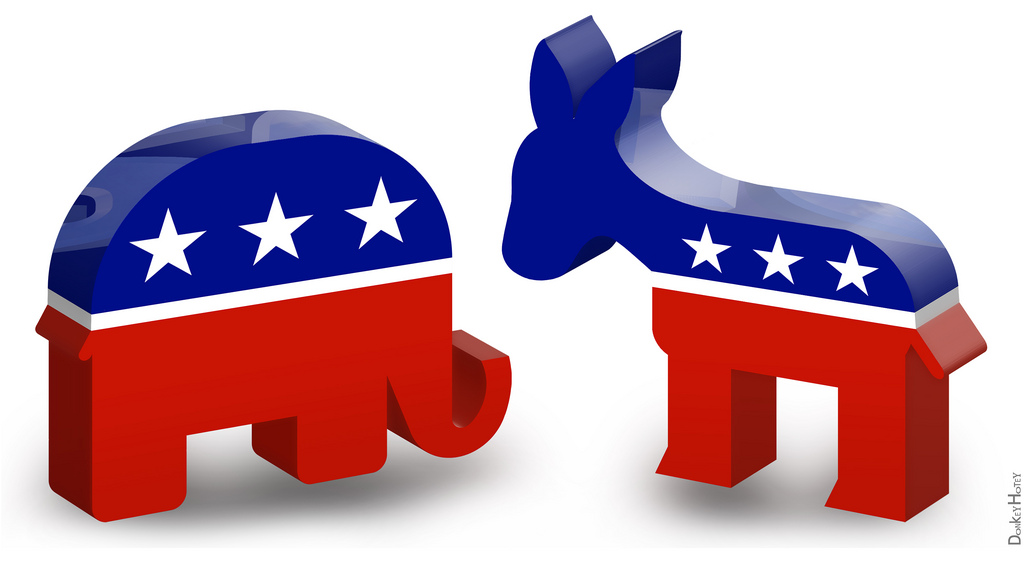Learning the lingo of science communication that resonates
This post contributed by Terence Houston, ESA Science Policy Analyst
Many political observers would liken the current climate on Capitol Hill to a virtual total breakdown of civil communication where differing sides have become increasingly entrenched in their own ideological philosophies, either unwilling or incapable of meeting in the middle. The latest calamity concerning the failure of the so-called “supercommittee” to “go big” and come up with comprehensive deficit reduction legislation further reinforces this perception.
Past major budget agreements in modern history, specifically the 1990, 1993 and 1997 balanced budget agreements collectively included a mix of spending, entitlement cuts and revenue increases. Two of the three agreements were passed during a time when the White House and Congress were controlled by separate parties. The failure of current political leaders to come to agreement on significant revenue and entitlement reforms, which could reduce the nation’s debt by trillions of dollars, makes it all the more likely discretionary spending, including federal investments in science, will be significantly diminished in coming years.
The current gridlock can partially be attributed to an unwillingness by opposing sides to understand the perspective of their colleagues on the other side of the aisle, a failure to adhere to the concept of “meet me halfway.” This lack of comprehending or acknowledging the virtues or commonalities within the arguments made by the opposing side becomes the main reason each of the two parties are increasingly not talking to one another, but talking past one another in negotiations and legislative debates. The talking-past-one-another-syndrome is also a failing that scientists unaware of or inexperienced in effective communication practices can easily fall prey to.
Consequently, the art of effective communication is one that scientists need to master if they hope to garner any success in advancing (or preserving) policies that are important to them. Hence, if scientists are to affect change in policy, they need to learn to speak the language of the entity they are talking to, inform through the use of concepts or ideas of mutual importance or interest.
The Aldo Leopold Leadership Program (ALLP) intends to improve environmental scientists’ ability to communicate effectively and persuasively beyond the world of academia, with a specific focus on the public policy realm. The program was created in 1998 by Jane Lubchenco, who now heads the National Oceanic Atmospheric Administration, Hal Mooney and Paul Risser, all former presidents of the Ecological Society of America.
In the most recent edition of the Ecologist Goes to Washington podcast, Elena Bennett, Assistant Professor for the Department of Natural Resource Sciences and McGill School of Environment at McGill University in Montreal, Canada discusses her experiences with the ALLP and how it modified her understanding of effective science communication:
As scientists we’re often told to simplify our message to decision-makers and journalists…The reality is, I don’t think that’s quite right. I think it’s more about making our messages accessible…simplifying just means that I reduce the complexity of my message, but making it accessible really requires me to understand the point of view of the person that I’m talking to and meet them half-way with my message, so it’s not just simplifying my message, but it’s bringing the story in a way that respects the other person’s point of view and the decision that they’re trying to make.
Accessibility, as Bennett describes it, is key toward bridging the ideological gulf in any policy argument. Given that today’s policy debates prioritize fiscal austerity and impact on the economy and jobs, ecologists who seek to engage in policy have to tailor the perspective they are bringing to accommodate this reality. Even proposed actions that once held widespread bipartisan support must meet the litmus tests related to the overall financial cost of implementing the policy as well as the policy’s impact on job creation.
Whether the issue concerns flood control and monitoring activities, water contamination, invasive species, wildlife and habitat preservation or the issue of climate change, there is ample information highlighting the economic and fiscal benefits of prioritizing ecosystem sustainability and the important role investment in ecological research can play in mitigating these problems and improving our overall well-being. It is the responsibility of the ecological community to inform ourselves of the priorities and anticipate the concerns of those outside the ecological community with whom we seek to interact, so that we do so in a manner most likely to make a difference.
Photo Credit: Donkeyhotey

